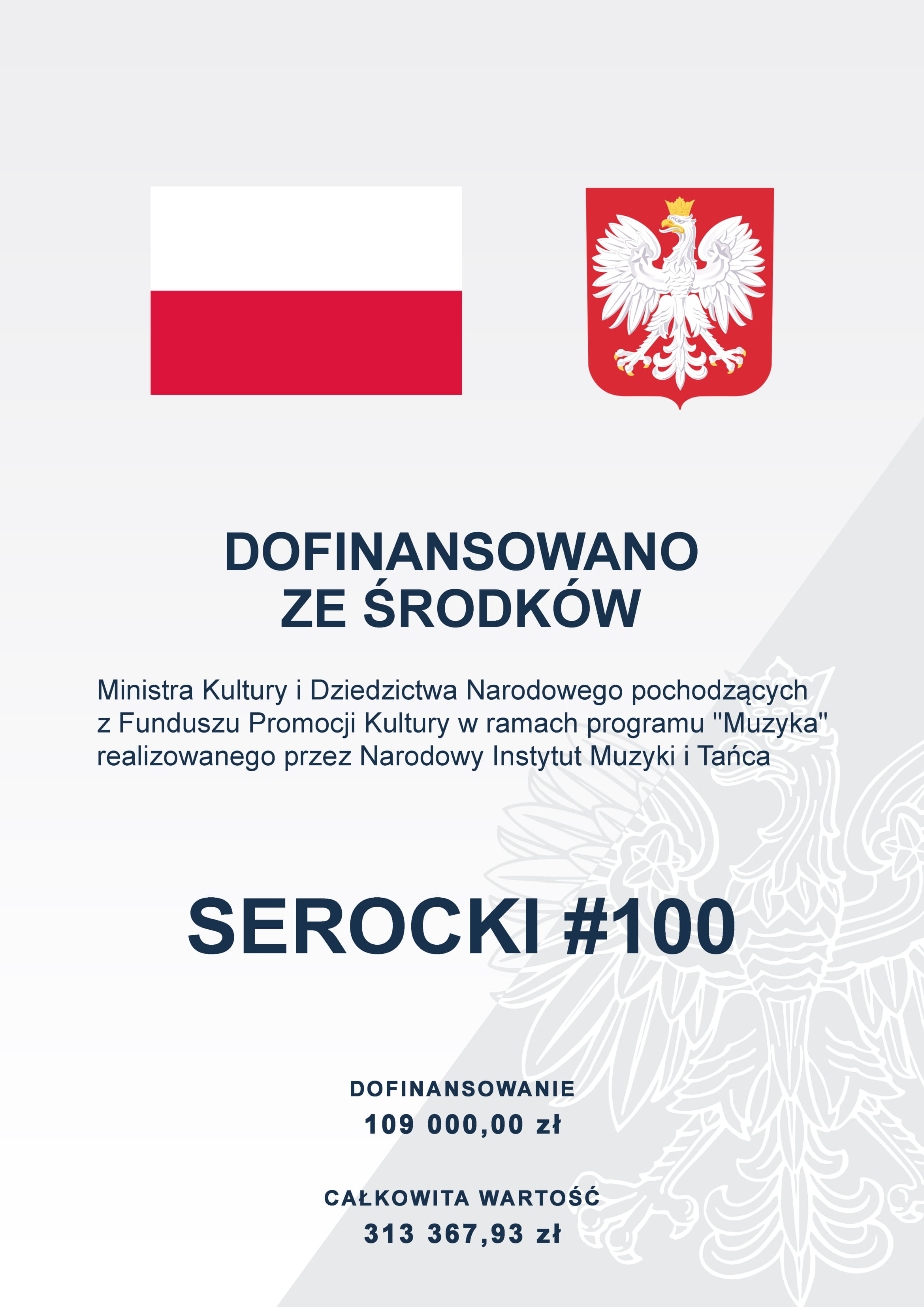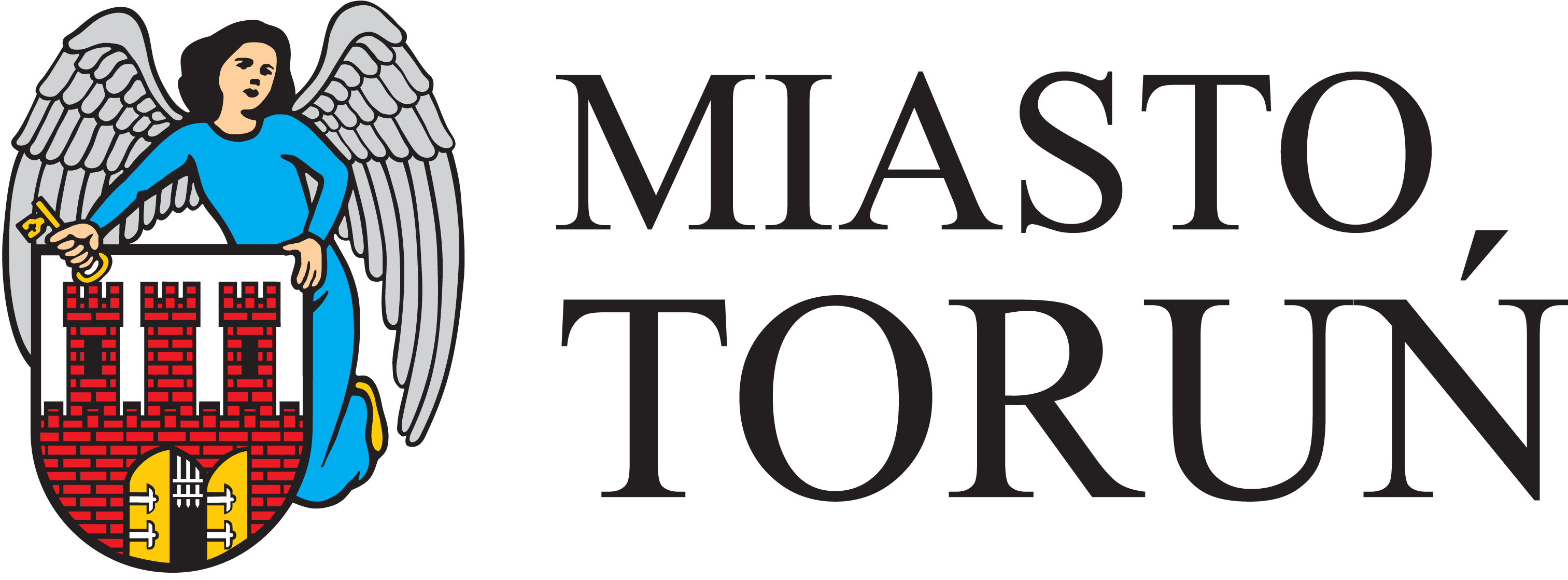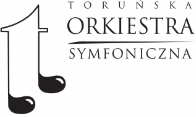Idea projektu Serocki #100
3 March 1922 - on this day in Toruń the main character of this project was born. Kazimierz Serocki - avant-gardist? opportunist? colourist? - which of these terms best describes his vita? Together with the guests invited to the project, we will try to answer these and other questions - with music on the one hand and discourses on the other.
First of all, Serocki should be introduced as a Torunian. It is not only because he was born here and grew up in the area. Serocki's family home, which changed address many times, was a home that cared for its youngest residents – Kazimierz and his sisters. Nevertheless, it is worth noting that musical tradition was not a part of hearth and home when they were being raised. They erupted in Kazimierz inherently, as an inner need of a young child, who already at the age of 5 was receiving his musical education in piano in the local, Toruń environment. But about all of this we will tell you a little later... At this point it is worth noting that Kazimierz, or Kazio at the time, was a peculiar individual in the Serocki household. This characteristic has remained with him almost always - when he was taking his first steps as a composer, creating popular music, when he was composing theater and film works, also when he and his friends were looking for ways to find themselves belonging as artists the post-war, socialist-realist cultural conditions, and finally when, as a composer recognizable in Western Europe, he was creating music 'of tone colors' and giving lectures in important European cultural centers.
All of these themes will return in an expanded formula within the framework of this project. First and foremost, its core is music - from the works of the young Toruń-born composer Adam Falenta, who paid homage to Serocki in his original composition with the sound idiom most often associated with the creative silhouette of the protagonist of this story, through the famous Pianophonie - a kind of opus magnum of the composer, to his film music, including premiere concert performances of one of Serocki’s work arranged into a suite. Serocki's music and works directly related to his oeuvre will be presented against the background of the rich Polish musical culture - that which was already a tradition for Serocki, that which determined the circumstances of his compositions, and that which treated Serocki's output and the creative atmosphere of his time as an artifact of the past.
The compositions that will be premiere performed as part of this project and comment on Kazimierz Serocki's creative output grow out of two traditions shaping Polish musical culture in the 20th century. The first, which has already been mentioned, referred to composing a work 'of tone colors', achieved through artistic devices stemming from sonoristic experiences. On the other hand, a clear accent will be the reference to Polish electronic music, which Serocki reached for once, having just composed his Pianophonie towards the end of his life. Together with this piece the Szymon Weiss's work entitled Live Act with arrangements with symphonic orchestra and Kazimierz Serocki's pieces will be premiered. The two works mentioned here clearly emphasize the appealing character of Serocki's oeuvre from the perspective of the most recent musical culture, and the way it refers to the traditions of the last century.
The example of Pianophonie also makes it perfectly clear that one of the main protagonists of the project will be the piano - an instrument absolutely privileged in Serocki's output. This is, of course, due to the composer's own experience of performing piano music - it was, after all, the beginning of his artistic journey. As a pianist, he did not shy away from nineteenth-century repertoire such as the compositions of Fryderyk Chopin, Franz Liszt or Robert Schumann; nevertheless, he showed considerable interest in repertoire representing the musical culture of the early twentieth century, i.e., the works of Claude Debussy or Karol Szymanowski and, of course, those of his contemporaries, especially Polish composers. The piano, therefore, also as a point of reference to musical tradition, deserves a high position in the context of considering the work of Kazimierz Serocki. During the project we will hear his Romantic Concerto composed in 1951, which will also provide an opportunity to present the latest works in the genre of the piano concerto in Polish musical culture. In addition to it, the concert program includes Wojciech Kilar's Second Piano Concerto and Piano Concerto No. 3 'Fragments of Memory' by Zygmunt Krauze, a musician who for many years prepared performances of Serocki’s works in collaboration with the composer. An accent related to the importance of pianism in Serocki's ouvre will also be marked during Adam Kośmieja's piano recital - the program of this concert will include solo compositions: Kazimierz Serocki's Sonata and cycles of his miniatures.
The events described above, as well as others of this project, will allow us to become aware of Serocki’s role in the diverse and rich Polish culture of the last century which was altered by overly specific atmosphere. What is marked by music will also be complemented by the discourse side of the project. It will consist of lectures and meetings with musicologists, authors and artists. These will reach not only the participants of the concerts, but also the local community, which through them will learn about the circumstances conducive to participation in maintaining the memory of Kazimierz Serocki in his native, local environment. The lectures will be complemented by meetings with guests - musicians who collaborated with Serocki, which in turn will make it possible to attempt to reconstruct his personality - as individual as his work itself – in the panorama of Polish musical culture of the last century; and not only Polish culture, because, as we shall see, the significance of Kazimierz Serocki's work for the culture of Western Europe can not be underestimated… The project will also include a meeting with Iwona Lidstedt, professor of musicology, author of the latest and most reliable monograph on Serocki's work to date, entitled Kazimierz Serocki. Piszę tylko muzykę.
All above-mentioned will make it possible to indicate, at least to a minimum extent, an answer to the questions outlined in the first paragraph. Undoubtedly, however, the focus of the project will remain what seems most important from Toruń's perspective - the fate of the young musician, later also a composer, when he was living in the area of Chełmno Land. The project will tell the story of how he lived here, the relationships he established, how local traditions and fashions influenced his work, and the circumstances in which he left his birthplace, to which he willingly returned as a mature artist highly regarded in Poland and Europe.
Karol Furtak






